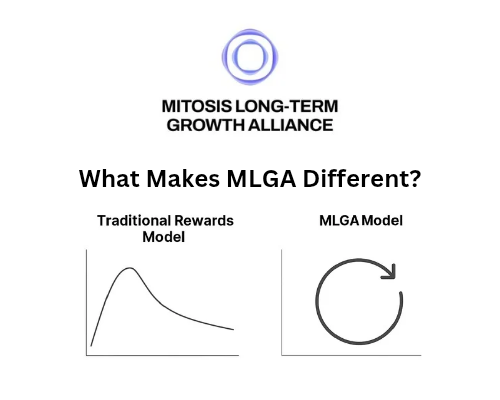Anthony Pompliano’s ProCap Financial: A $1 Billion Bitcoin Treasury Powerhouse

On June 23, 2025, Anthony Pompliano, a prominent cryptocurrency advocate and entrepreneur, unveiled ProCap Financial, a new Bitcoin-native financial services company designed to reshape institutional engagement with digital assets. Formed through a $1 billion merger with Columbus Circle Capital Corp. I (NASDAQ: CCCM), a special purpose acquisition company (SPAC), ProCap aims to become a publicly traded entity holding up to $1 billion in Bitcoin on its balance sheet.
The company has already raised over $750 million in a combination of equity and convertible debt, setting a new record for the largest initial capital raise by a public Bitcoin treasury company. As Bitcoin continues to gain traction among corporations and institutional investors, ProCap positions itself at the forefront of this growing movement.
The Formation and Vision Behind ProCap
ProCap Financial is the product of a merger between Pompliano’s private firm, ProCap BTC, LLC, and Columbus Circle Capital, a SPAC sponsored by Cohen & Company Inc. The transaction is expected to close by the end of 2025, subject to regulatory approval from the U.S. Securities and Exchange Commission. The capital raised includes $516.5 million in equity and $235 million in convertible notes.
The fundraising attracted a mix of institutional and crypto-native investors, including Magnetar Capital, Woodline Partners LP, Anson Funds, Blockchain.com, Arrington Capital, and FalconX. Individual backers include industry veterans such as Mark Yusko, Jason Williams, and Eric Semler.
Pompliano brings a well-established presence in the cryptocurrency space. He is widely known for his daily newsletter, The Pomp Letter, and his podcast, The Pomp Podcast, which has amassed over 50 million downloads. His early investments in more than 300 private companies, along with his role as a co-founder of Morgan Creek Digital, underscore his influence in shaping institutional adoption of digital assets.
However, Pompliano’s involvement with BlockFi—an early crypto lending platform that filed for bankruptcy in 2022 following the FTX collapse—has drawn criticism. While this history raises questions for some, it has not deterred investor interest in ProCap’s potential.
Executing a Bitcoin-First Strategy
ProCap’s core strategy centers on building one of the largest corporate Bitcoin treasuries while also creating a full-stack Bitcoin-denominated financial services platform. Unlike many firms that passively hold Bitcoin, ProCap intends to generate revenue and profit from its holdings through lending, trading, and capital markets operations.
On June 24, 2025, the company acquired 3,724 Bitcoin at an average price of $103,785 per coin, totaling approximately $386 million. This was followed by an additional purchase of 1,208 Bitcoin, bringing ProCap’s total holdings to 4,932 Bitcoin—valued at around $510 million at the time of acquisition.
If the merger proceeds as planned, ProCap’s treasury would rank among the top 15 Bitcoin-holding public companies, trailing leaders like MicroStrategy (now rebranded as Strategy), which holds over 592,000 Bitcoin. Pompliano has emphasized the firm’s immediate deployment of capital as a differentiator, stating that while most SPACs let capital sit idle in cash, ProCap is actively acquiring Bitcoin from day one.
This proactive approach allows investors to gain direct exposure to Bitcoin’s price movements through ProCap equity, rather than waiting for a delayed acquisition strategy.
A Familiar Financial Model With a Digital Twist
ProCap is designed to mirror the structure and professionalism of a traditional Wall Street firm, but with a Bitcoin-native foundation. This model aims to attract institutional investors who are cautious about direct crypto exposure but comfortable with established financial frameworks.
The firm’s convertible notes are structured with investor protection in mind. They carry a 130% conversion rate, a zero percent interest rate, and a 36-month maturity, and are overcollateralized 2-to-1 by either cash or Bitcoin. U.S. Bank National Trust will serve as the trustee and collateral agent, adding a layer of institutional oversight and credibility to the arrangement.
ProCap’s leadership team, which includes Columbus Circle Capital CEO Gary Quin, has emphasized sustainable business fundamentals and disciplined capital allocation as central to its long-term vision. Pompliano has described the company as a hybrid—combining the operational sophistication of legacy finance with the decentralized, permissionless ethos of Bitcoin.
Context in the Broader Bitcoin Treasury Movement
ProCap enters the market during a notable wave of corporate Bitcoin treasury accumulation, a trend that began with Michael Saylor’s MicroStrategy in 2020. Since then, several public companies—including GameStop, Trump Media, and Japan’s Metaplanet—have announced plans to hold Bitcoin as a reserve asset. As of June 2025, public companies collectively hold over 835,000 Bitcoin, worth approximately $85 billion.
While this movement has drawn praise for accelerating mainstream crypto adoption, some analysts view it as a speculative bubble driven by cheap capital and high-profile endorsements. Pompliano, citing a quote from George Soros, embraces this dynamic, arguing that bubbles often form around trends that are working—suggesting that the Bitcoin treasury trend reflects real underlying demand.
Nevertheless, critics have voiced concerns that ProCap’s model closely mirrors MicroStrategy’s leveraged Bitcoin strategy, which they argue could expose firms to systemic risks in the event of sharp price corrections. Coinbase analysts have warned that such strategies may amplify volatility in already fragile crypto markets. Pompliano, for his part, maintains that ProCap’s approach is more risk-aware and revenue-focused.
Risks and Regulatory Headwinds
Despite early enthusiasm, ProCap’s strategy is not without risks. The company’s reliance on Bitcoin’s long-term price trajectory and its ability to execute revenue-generating services introduce significant operational challenges.
Moreover, the success of the SPAC merger is contingent on both regulatory approval and stable market conditions. Any delays or pushback from the SEC could stall the listing, while continued volatility in Bitcoin’s price—currently fluctuating between $99,000 and $108,000—adds an extra layer of uncertainty.
Pompliano’s previous association with BlockFi has also resurfaced in public discourse, particularly among crypto users on platforms like X (formerly Twitter). Critics argue that past missteps raise doubts about his ability to lead a large, complex financial enterprise in a highly volatile industry.
Implications for the Future
ProCap Financial reflects a broader institutional shift toward digital assets, particularly Bitcoin, as a strategic reserve currency. Pompliano’s decision to place over 80% of his personal net worth in Bitcoin underscores his commitment to this vision.
The company’s hybrid approach—merging crypto-native tools with traditional financial infrastructure—could serve as a bridge for other institutions considering exposure to digital assets. If successful, ProCap could accelerate the normalization of Bitcoin on corporate balance sheets, reshaping how capital markets interact with crypto.
Yet the broader landscape is becoming increasingly competitive. A growing number of firms, from real estate moguls like Grant Cardone to industrial players like Norway’s Green Minerals, have announced similar Bitcoin treasury initiatives. ProCap’s ability to distinguish itself through innovation, disciplined execution, and transparent governance will determine whether it leads or lags in this evolving space.
Conclusion
Anthony Pompliano’s ProCap Financial represents an ambitious effort to build a next-generation financial institution centered on Bitcoin. With more than $750 million already raised and plans to hold up to $1 billion in Bitcoin, the company is positioned to become a dominant player in both the public markets and the digital asset sector.
While the opportunity is significant, ProCap must navigate a complex landscape marked by regulatory scrutiny, market volatility, and increasing competition. Its future success will hinge not just on Bitcoin’s price, but on its ability to deliver meaningful, cash-flow-generating services that validate the long-term viability of a Bitcoin-native
References













Comments ()